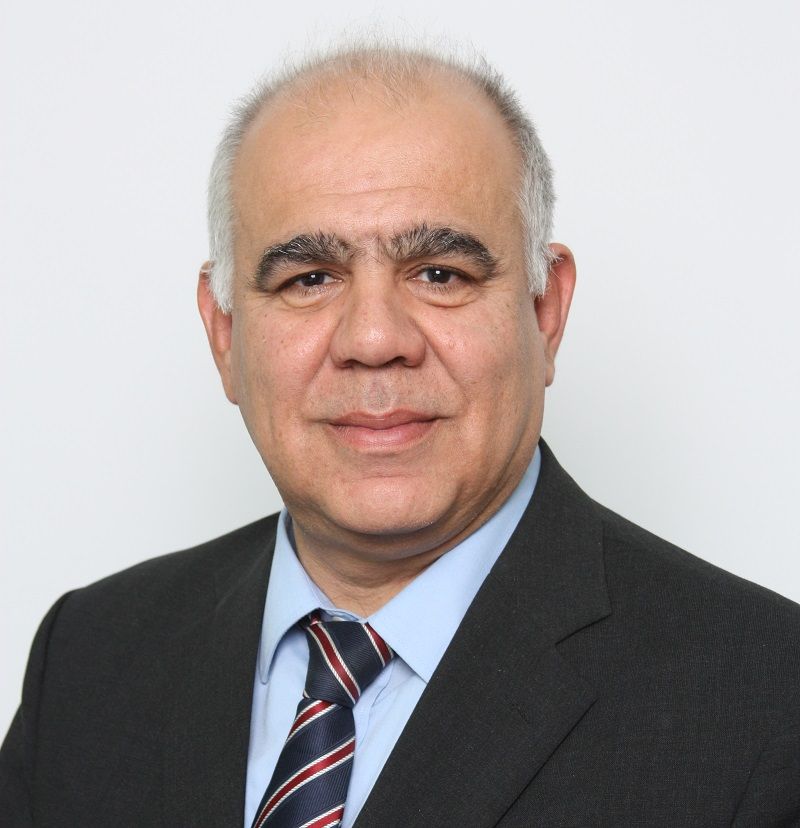Dealing with the Cyprus problem: an alternative proposal
#CriticalThinking
President of the Cyprus Center for European and International Affairs, and Head of the Department of Politics and Governance at the University of Nicosia
Eight ideas to address a long-standing issue
Andreas Theophanous is Professor of Political Economy and President of the Center for European and International Affairs of the University of Nicosia
In recent years a consensus has developed on dealing with the division of Cyprus: things will get better only if there is a bi-zonal, bi-communal federation on the island. But this is not necessarily the case as the solution that will be discussed at talks in Geneva from 9 to 12 January has a number of pitfalls. For example, it will be difficult, if not impossible, for Cyprus to continue in the eurozone. Serious concerns have already been expressed in various circles in Cyprus, as well as in the European Union and at the International Monetary Fund. Also, models based on ethno-nationalist pillars in a single state often lead to blockages, friction and frustration. Bosnia and Hercegovina and Lebanon are instructive examples.
A solution improving the status quo for the Greek-Cypriots seems difficult to achieve given the current stance of Turkey. Turkey aims to push aside the Republic of Cyprus to replace it with a new state entity. One of the risks involved in this is Cyprus being a ‘protectorate’ of Turkey. A bi-zonal, bi-communal federation with political equality would see Turkey gain a say in the EU affairs through its influence on the affairs of the new state of Cyprus. We should also not forget that there has been a gradual alignment of Greek Cypriot positions with Turkish demands since the latter’s invasion in 1974.
The status quo poses serious risks, but so does the current proposal for a bi-zonal, bi-communal federation. So we need an alternative proposal. We need to reassess the situation and focus on policy options that may help both sides to break the deadlock in a constructive way. And we need these alternative approaches to be based on an evolutionary rather than revolutionary process.
The status quo poses serious risks, but so does the current proposal for a bi-zonal, bi-communal federation
It will be extremely difficult, if not impossible, to move from one state of affairs to another overnight. The issues are not just legal. There are separate narratives, experiences, perceptions, value-systems and political, economic and social realities.
So we need some basic principles to make the evolutionary approach work.
First, the occupied areas in the northern part of Cyprus should be turned into an EU region under the Turkish Cypriot administration. This means that Protocol 10 of the Treaty of Accession of the Republic of Cyprus to the EU, which suspends application of EU law in the northern part of Cyprus, no longer applies and European rules are effective throughout the island.
Second, Turkey should gradually return occupied territories to Greek Cypriot control, with the four basic EU freedoms of movement implemented and relevant obligations put on the Turkish Cypriot community.
Third, the Republic of Cyprus and Turkey must normalise relations.
Fourth, the two sides should develop a roadmap and guidelines for a federal constitution; it is essential to amend the 1960 ‘consociational’ constitution by introducing more federal integrationalist elements.
Fifth, the EU should take on its responsibilities to ensure a harmonisation process in the occupied territories of Cyprus. With the adoption of EU law in the occupied northern part of Cyprus, a process of internal political, social and economic convergence needs to be launched.
We need to think outside the box − it is not too late to seriously consider an alternative proposal
Sixth, Turkey must also assume its responsibilities. When Turkey invaded Cyprus in July 1974 it declared that its objectives were to restore the constitutional order of the Republic of Cyprus and to protect the Turkish Cypriot community. Turkey should now contribute to achieving these goals. The first steps should be to end its ongoing colonisation and withdraw its military forces.
Seventh, the Republic of Cyprus should react accordingly at all levels. It is essential to make the Republic’s voice heard and to promote it effectively.
Finally, any solution to the crisis should be based on a voluntary agreement between the two communities of Cyprus. The evolutionary approach gives both sides the necessary time to strengthen relations between the communities and make real the concept of an integrationalist, federal, indivisible state. If this is not possible, other ways should be sought to ensure peace and security within the framework of Cypriot membership of the EU.
Next week’s talks in Geneva will try to reach a comprehensive agreement. But achieving consensus with a strong majority support on each side will be difficult.
This is why we need to think outside the box. It is not too late to seriously consider an alternative proposal, one that is more rooted in the fundamental principles of politics, the economy, history and sociology. By doing so, we can have an outcome that satisfies multiple interests and objectives.
The article is based on a joint proposal made in the Greek-language policy paper ‘Bi-zonal Bi-communal Federation and the Alternative Proposal’ by Andreas Theophanous, Soteris Kattos and Constantinos Mavroedis
Stay informed
